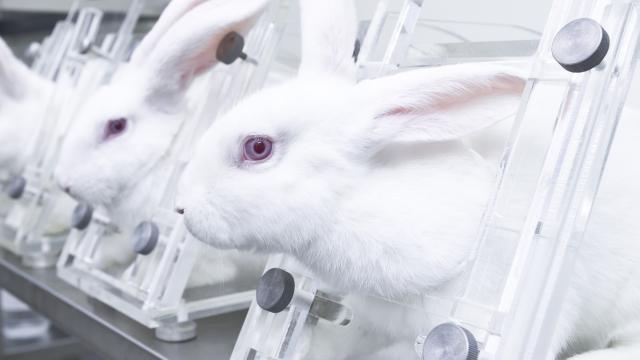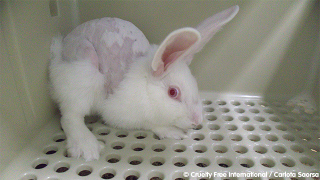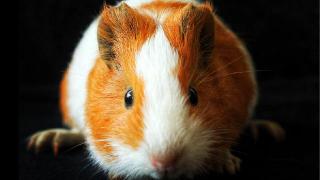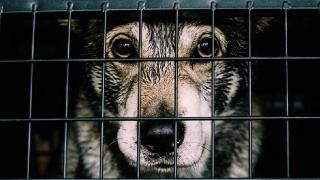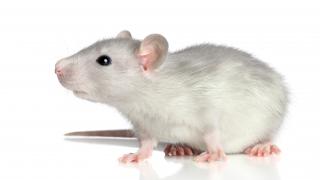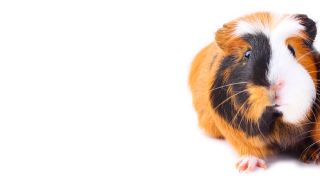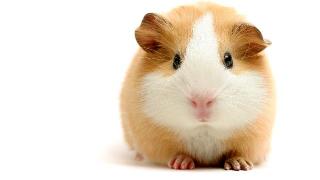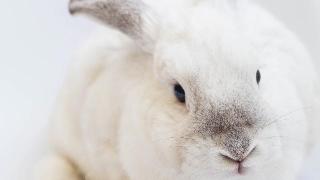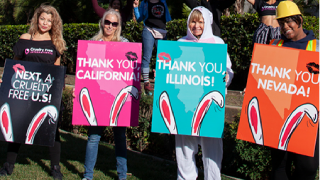Despite great progress over the past thirty years, animals continue to suffer in laboratories all over the world in tests required by governments for ingredients used in cosmetics. These tests include dripping cosmetics chemicals into animals’ eyes, shaving their fur and rubbing them into their exposed skin or forcing them down their throats. Once the tests are over, the animals will be killed and dissected.
Animal tests are increasingly being replaced with quicker, cheaper and more reliable non-animal methods. These modern methods are more relevant to humans and have been found to predict human reactions better than the traditional outdated animal tests. Alternative methods are tests that use simple organisms like bacteria, or tissues and cells from humans (vitro tests), and sophisticated computer models or chemical methods (in silico and in chemico tests).
Cruelty Free International is working to end cosmetic testing on animals globally once and for all - and to protect and strengthen the bans already in force in the United Kingdom, Europe and elsewhere.
The Facts
- The carcinogenicity test, which involves the use of about 400 animals per test, is notoriously unreliable with an estimated prediction of human cancers of only 42%.
- The skin allergy tests in guinea pigs only predict human allergic reactions 72% of the time.
- Human skin cells can be grown in vitro (in a dish) to test ingredients for skin irritation. These tests are more relevant to human safety since they were tested on human cells.
- Modern eye irritation tests can use corneas cultured in vitro instead of using rabbits. The modern test can be conducted in a day whereas rabbit tests take two to three weeks and are notoriously unreliable.
- Companies can use computer models to predict toxicity based on the known chemical structure and behavior of the existing ingredient.
Sadly, despite the availability of non-animal methods and many thousands of ingredients already considered as safe, as well as clear opposition from the public, countless animals are still subjected to cruel tests around the world for ingredients used in cosmetics.
Over the past 30 years, public pressure to end the testing of cosmetics on animals has been growing and following decades of tireless campaigning by Cruelty Free International and our partners, the European Union prohibited the testing of cosmetics products on animals in 2004. In 2009, it prohibited tests for cosmetics ingredients and, finally, in 2013 it prohibited the sale of cosmetics that had been tested on animals. The EU’s approach became the blueprint for regulatory change in countries around the world, like India, Israel and New Zealand. Since then, more and more countries and states in the USA and Brazil have adopted similar laws.
In a global market it is important for all countries to end animal testing for cosmetics. We believe that manufacturing and buying cruelty free cosmetics is the responsible and ethical thing to do. And it is what consumers all over the world want.
For more than 50 years, animals have been used in painful tests for cosmetics. But science and public opinion have evolved and today it is no longer necessary or acceptable to harm animals for new cosmetics.
Our achievements
In 1996, we launched the Leaping Bunny programme. Symbolised by the Leaping Bunny logo, our world-leading programme is working hard to turn shopping malls and high streets cruelty free with more and more leading household names gaining Leaping Bunny approval.
In 2012, we relaunched the Against Animal Testing campaign in partnership with The Body Shop, asking customers in stores across 65 countries, including the USA, Canada, Australia, New Zealand, South Africa, Korea, Japan, and Russia to sign a pledge calling for an end to animal testing for cosmetics. And in October 2013, we announced that we had secured over one million signatures from customers and supporters worldwide and presented these pledges to lawmakers and regulators in different countries.
We won the prestigious Sustainability Pioneer category of the Sustainable Beauty Awards in 2014 for our work to ban cruel cosmetics in Europe. The award requires evidence of a positive social, economic and environmental impact and a significant contribution to sustainable development in the beauty industry.
In 2013, we hosted the first congressional briefing to advance the US Humane Cosmetics Act and we were the first organisation to work with state lawmakers on this issue, leading to the enactment of cruelty free cosmetics laws in California, Nevada and Illinois in 2020 and more US states in 2021.
In 2018, our advocacy team worked with Members of the European Parliament to secure overwhelming support for a global ban on cosmetics animal testing.
In 2018, we took a record-beating 8.3 million global signatures to the UN in New York along with The Body Shop in support of a worldwide end to animal testing for cosmetics everywhere and forever.
In June 2018, we launched our pioneering Leaping Bunny China pilot programme, working with brands and government representatives in the UK and China to chart a way for cruelty free cosmetics in the country.
In December 2020, we joined forces with more than 400 beauty companies and brands to send an open letter addressed to the European Commission, Parliament and Council calling for new animal testing to be stopped, in adherence with the existing EU animal testing ban on cosmetic products and ingredients, and in August 2021, together with other animal protection groups and cruelty free brands, we launched a European Citizens’ Initiative to save cruelty free cosmetics.
Our highly experienced and passionate team has made real progress around the globe for the countless animals suffering in cruel tests for cosmetics through our positive, innovative and often trailblazing approach.
What we do
- Lobby politicians and governments to end the use of animals in cosmetics testing everywhere and forever
- Encourage regulators to accept and enforce the use of non-animal tests
- Mobilise compassionate citizens through high profile campaigns
- Promote and encourage companies to go cruelty free by becoming Leaping Bunny approved
What you can do
Our Leaping Bunny programme is the best assurance there is that a brand is making a genuine commitment to ending animal testing for its products and ingredients right through its supply chain and over and above what the law requires. Approved companies must meet our rigorous criteria, including independent checks and on-going audits before we let them display the Leaping Bunny logo.
So, until we achieve that global ban, look out for the Leaping Bunny and join in our cruelty free cosmetics campaigns around the globe!
Cosmetics campaigns
End the trade in primates
subtitle: Thousands of monkeys are traded globally for research
The MAP Campaign
subtitle: Make Alternatives a Priority in the US
Save the dogs
subtitle: Help us stop the use of dogs in experiments
Ending toxicity testing on dogs and monkeys
subtitle: Help us end the use of dogs and monkeys in experiments
Replace Animal Tests: The UK RAT List
subtitle: 5 animal tests that should be replaced
5 animal tests that should be replaced
Replace Animal Tests: The EU RAT List
subtitle: 10 animal tests that should be replaced
10 animal tests that should be replaced
Make Their Voice Count
subtitle: Pledge to #MakeTheirVoiceCount in this administration.
Animals don’t speak our language, but that doesn’t mean they don’t have anything to say.
Making North America cruelty free
subtitle: Ending animal testing for cosmetics in North America
Global Cosmetics Campaign
subtitle: Ending cosmetics testing around the world
Support the HEARTS Act
subtitle: Ask your US Representative to support the HEARTS Act
The HEARTS Act will prioritize the use of humane and effective alternatives to animals in experiments funded by the National Institutes of Health.
Support the Humane Cosmetics Act
subtitle: Ask your US Representative to support the Humane Cosmetics Act.
If you live in the US you can help by contacting your US Senator and asking them to support the Humane Cosmetics Act
Help us #SendSurvivorsHome by supporting the CARE Act
subtitle: Ask your US Representative to support the CARE Act.
Over 200,000 dogs, cats, and rabbits are used in experiments each year in the United States. The Companion Animal Release from Experiments (CARE) Act will ensure that dogs, cats, and rabbits are placed in loving homes

